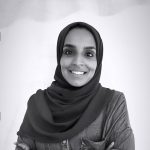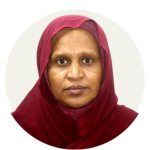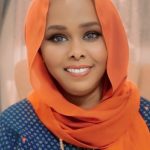12th September 2025
How a women-led, refugee led local organisation is leading from lived-experience and making real change.
“Do not look at refugees solely as vulnerable people in need of aid. Recognise them as skilled capable and resilient individuals who have been displaced by the conflict. We believe that refugees should be seen as partners not just as beneficiaries and that’s what Women Refugees for Peace and Development are currently doing.” – Amira
In this advocacy-focused podcast episode, three Sudanese women Rayan Salah, Amira Timan and Mona Elshareif Tazorah share a powerful reflection on their journey so far – from displacement to leading a humanitarian response in Entebbe and Wakiso municipality, Uganda for refugees from across East Africa.
You can listen to this episode on Apple Podcasts, Amazon Music, Buzzsprout, Spotify and more.
Nwabundo Okoh, Communications and Marketing Lead at the HLA hosts this conversation as a follow-up to discussions at HX Kampala which focused primarily on Sudan. This episode explores how Women Refugees for Peace and Development Organisation (WRPDO) is helping other refugees settle and thrive in Uganda while advocating for locally-led humanitarianism.
Starting with their individual journeys, to establishing WRPDO and supporting Sudanese, South Sudanese, Eritrean, Ethiopian, and Congolese nationals – this episode educates, informs, challenges and reflects on what truly locally-led humanitarian response looks like in one of the world’s largest and fastest-growing displacement crisis in history.
Listen now to this heart-felt conversation including Rayan’s thoughtful description on WRPDO’s personal approach to programming, Mona’s remarkable reflection on HX Kampala and Amira’s urgent call to the international humanitarian community.
Keywords: localisation, refugee support, crisis response, humanitarian leadership, ensuring dignity, women led, refugee led, Sudan, Sudan crisis response, humanitarian innovation, capacity strengthening, financial support, sustainable partnerships, education, international humanitarian community, leave no one behind, urban refugees
The views and opinions expressed in our podcast are those of the speakers and do not necessarily reflect the views or positions of the HLA.
About the Speakers
Amira Timan is the co-founder of Women Refugees for Peace and Development Organisation. She is a protection cluster coordinator with an extensive background in humanitarian response, peacebuilding & gender affairs.
Mona Elshareif Tazorah is a gender and protection specialist with 15 years of experience in gender equality and women’s empowerment, currently volunteering with Women Refugees for Peace and Development.
Rayan Salah is an environmental engineer and humanitarian specialist, passionate about locally led and gender inclusive approaches to climate resilience, displacement, and peacebuilding.
Nwabundo Okoh is a story teller par excellence with over two decades of international experience in communications and marketing across public, private and third sectors.
Messages to the International Community
- Recognise refugees as skilled, resilient partners; include them in design, implementation, and decision-making.
- Shift from dependency to empowerment.
- Invest in education, skills, job creation, and economic inclusion.
- Provide flexible, sustained funding and capacity support to refugee- and women-led organisations.
- Sustain localisation.
- Build equitable partnerships that centre marginalised voices and community-led solutions for durable outcomes.
HX Kampala took place in June with support from Google.org and Center for Disaster Philanthropy. The two-day conference convened by Save the Children Uganda and Humanitarian Leadership Academy was a unique much-needed opportunity for humanitarian actors across East Africa to connect, network and collectively consider best practices, partnerships, solutions to challenges and lessons learned to continue driving forward locally-led humanitarian response. HX Port Sudan takes place in September 2025.
This episode is produced by Nwabundo Okoh, Comms and Marketing Lead HLA


